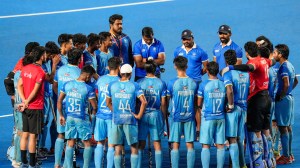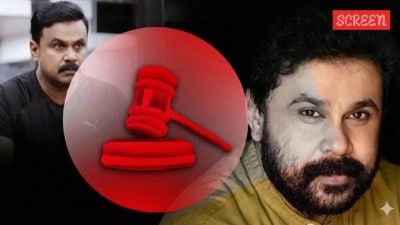Operation Sindoor posts: SC quashes FIR against Ashoka University professor; bars magistrate from acting on second complaint
Professor Ali Khan Mahmudabad was arrested on May 18 after two FIRs were registered over his posts on Operation Sindoor which allegedly disparaged women officers in the Indian Armed Forces.
 Ashoka University associate professor Ali Khan Mahmudabad (Source: File)
Ashoka University associate professor Ali Khan Mahmudabad (Source: File)The Supreme Court Monday quashed a First Information Report (FIR) registered against Ashoka University Professor Ali Khan Mahmudabad over his comments on Operation Sindoor after the Haryana Police informed that it had filed a closure report in one of the two FIRs against him.
A bench of Justices Surya Kant and Joymalya Bagchi also directed the magistrate court against taking cognisance of the other FIR.
Mahmudabad was arrested on May 18 after the two FIRs were registered over his posts which allegedly disparaged women officers in the Indian Armed Forces.
Appearing for the academic, Senior Advocate Kapil Sibal pointed out that the constitutional validity of Section 152 (acts endangering sovereignty, unity and integrity of India) of the Bharatiya Nyaya Sanhita (BNS) is the subject matter of challenge in some petitions before the apex court but the police had gone ahead and added it to the FIR against Mahmudabad.
On May 21, the Supreme Court, while granting interim bail to Mahmudabad, had refused to stay the investigation, saying his remarks amounted to “dog whistling”. While granting him interim relief, the bench also restrained Mahmudabad from making any online post or writing any article or delivering any speech on the issue, the subject matter of the investigation, or “expressing any opinion in relation to the terrorist attack on Indian soil or the counter response given by our armed forces”.
It directed the constitution of a Special Investigation Team (SIT) “comprising three directly recruited IPS officers, who do not belong to the States of Haryana or Delhi” to probe the allegations in the FIRs.
Hearing it on July 16, the Supreme Court bench asked why the SIT was “misdirecting itself” in the case and said it was only supposed to “examine the contents of the posts”. The bench then asked the Haryana SIT to confine itself to the two FIRs, see if there was an offence, and submit its report in four weeks.
The court also said that it had only restrained Mahmudabad from writing on topics that were sub judice, and he was free to write or express his opinion on other issues.







